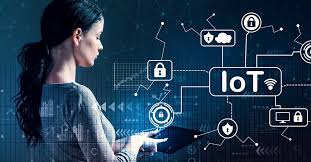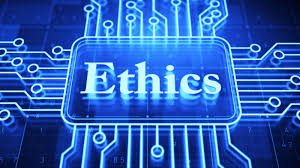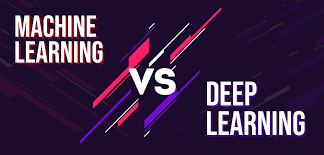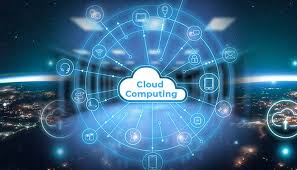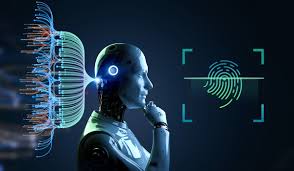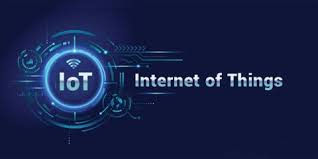How does technology impact education, healthcare, and other industries?
Introduction to Technology and its Impact on Industries
Welcome to the era where technology is not just a tool but a transformative force that shapes industries across the board. From education to healthcare, agriculture to business, technological advancements are revolutionizing how we work, learn, and live. In this blog post, we will explore the profound impact of technology on various sectors, highlighting the benefits, challenges, and future implications of these rapid changes. So buckle up as we delve into the fascinating intersection of technology and industries!
Technology’s Influence on Education
Technology has revolutionized the way we learn and teach in the education sector. With the integration of digital tools and online platforms, students now have access to a wealth of information at their fingertips.
Virtual classrooms allow for more interactive and engaging learning experiences, breaking down geographical barriers. Online resources such as e-books, videos, and educational apps cater to different learning styles, making education more personalized.
Moreover, technology enables real-time collaboration among students and teachers regardless of their locations. This fosters a sense of community and encourages peer-to-peer learning.
Artificial intelligence is also being utilized to provide personalized feedback to students, helping them track their progress and areas needing improvement. Technology’s impact on education is profound and continues to shape the future of learning.
Advancements in Healthcare due to Technology
The healthcare industry has been transformed by the rapid advancements in technology. From telemedicine to wearable devices, these innovations have revolutionized patient care and medical practices.
Telehealth services now allow patients to consult with healthcare providers remotely, saving time and improving access to medical expertise. Wearable devices like smartwatches can monitor vital signs in real-time, helping individuals stay proactive about their health.
Artificial intelligence is being used to analyze vast amounts of data quickly and accurately, leading to more precise diagnosis and treatment plans. Robotics are also playing a significant role in surgeries, allowing for minimally invasive procedures with improved outcomes.
Moreover, virtual reality is being utilized for pain management and therapy sessions. These technological breakthroughs continue to push boundaries in healthcare, offering new possibilities for both patients and providers alike.
Transformation of the Business Industry through Technology
The business industry has undergone a significant transformation with the integration of technology. From streamlining operations to enhancing customer experiences, technology plays a pivotal role in shaping how businesses operate today.
Cloud computing has revolutionized the way companies store and access data, making it easier for employees to collaborate remotely and boosting overall efficiency. The rise of e-commerce platforms has opened up new avenues for businesses to reach customers globally, breaking down traditional barriers to entry.
Data analytics tools have empowered organizations to make informed decisions based on real-time insights, paving the way for more strategic planning and forecasting. Automation technologies have also improved productivity by handling repetitive tasks, allowing employees to focus on more value-added activities.
With advancements in artificial intelligence and machine learning, businesses can now personalize marketing campaigns, optimize supply chain management, and even predict consumer behavior trends. As technology continues to evolve at a rapid pace, the business landscape will undoubtedly see further innovation and disruption in the years ahead.
The Role of Technology in Agriculture and Farming
With the rapid advancement of technology, agriculture and farming have seen significant transformations in recent years. From precision farming techniques to automated machinery, technology has revolutionized how we cultivate crops and raise livestock.
One key aspect where technology plays a crucial role in agriculture is data analysis. Farmers can now access real-time information about soil quality, weather patterns, crop health, and more through sensors and drones. This data-driven approach allows for better decision-making and improved productivity on the farm.
Moreover, innovations like vertical farming and hydroponics are reshaping traditional agricultural practices by enabling year-round production in controlled environments. These methods not only maximize space efficiency but also reduce water usage significantly compared to conventional farming methods.
Additionally, advancements in biotechnology have led to genetically modified crops that are more resistant to pests and diseases, resulting in higher yields and reduced reliance on chemical pesticides.
The integration of technology into agriculture is paving the way for a more sustainable future by enhancing efficiency, productivity, and environmental stewardship in the industry.
Environmental Impact of Technological Innovations
Technology has revolutionized industries, but its advancements also have a significant impact on the environment. From reducing paper waste through digital documentation to developing renewable energy sources like solar and wind power, technology plays a crucial role in promoting sustainability.
Innovations such as smart grids help optimize energy consumption, while IoT devices monitor environmental conditions for better resource management. Additionally, advancements in electric vehicles are reducing carbon emissions and combating air pollution.
With the rise of green technologies like biofuels and eco-friendly materials, industries are striving towards more sustainable practices. However, e-waste from discarded electronics remains a pressing issue that needs effective recycling solutions to minimize environmental harm.
Technological innovations hold great potential to mitigate environmental challenges and create a greener future for generations to come.
Challenges and Concerns with Technological Advancements
As technology continues to advance across industries, it brings along its own set of challenges and concerns. One major issue is the potential for job displacement as automation takes over certain tasks that were previously done by humans. This could lead to unemployment and a need for retraining in new skill sets.
Privacy and data security are also significant concerns with technological advancements. With the vast amount of data being collected and stored, there’s always a risk of breaches or misuse of personal information. Ensuring robust cybersecurity measures is crucial to protect sensitive data from falling into the wrong hands.
Moreover, the digital divide remains a challenge, as not everyone has equal access to technology due to factors like affordability or lack of infrastructure. This gap can widen inequalities in education, healthcare, and economic opportunities if left unaddressed.
Ethical considerations surrounding emerging technologies like artificial intelligence raise questions about accountability, bias, and transparency in decision-making processes. It’s essential to navigate these ethical dilemmas responsibly as we integrate tech solutions into various sectors.
Addressing these challenges requires proactive measures such as regulation frameworks, upskilling programs, awareness campaigns on digital literacy, and continuous dialogue among stakeholders to ensure that technological advancements benefit society at large while mitigating potential risks.
Future Predictions for the Intersection of Technology and Industries
As we look ahead to the future, the intersection of technology and industries is poised to bring about revolutionary changes. With ongoing advancements in artificial intelligence, machine learning, and automation, various sectors are expected to undergo significant transformations.
In education, virtual reality and personalized learning platforms will enhance student engagement and make education more accessible globally. The healthcare industry will witness a rise in telemedicine services and wearable health tech for remote monitoring.
Businesses will continue to streamline operations through data analytics and blockchain technology, improving efficiency and security. In agriculture, precision farming techniques powered by drones and IoT devices will optimize crop yields while minimizing environmental impact.
The integration of technology across industries is set to revolutionize how we work, learn, receive healthcare services – shaping a more interconnected world driven by innovation.
Conclusion
In a world where technology continues to advance at a rapid pace, its impact on various industries cannot be understated. From education to healthcare, business, agriculture, and the environment, technology has revolutionized how we work, learn, and live.
As we look ahead to the future of these industries, it is clear that technology will play an even more significant role in shaping our world. While there are challenges and concerns that come with technological advancements, the potential for innovation and improvement is limitless.
By embracing new technologies and adapting to change, industries can continue to evolve and thrive in an increasingly digital age. The intersection of technology with education, healthcare, business, agriculture, and environmental sustainability holds great promise for creating a better world for all.
So let us harness the power of technology responsibly as we move forward into this exciting era of progress and transformation.
